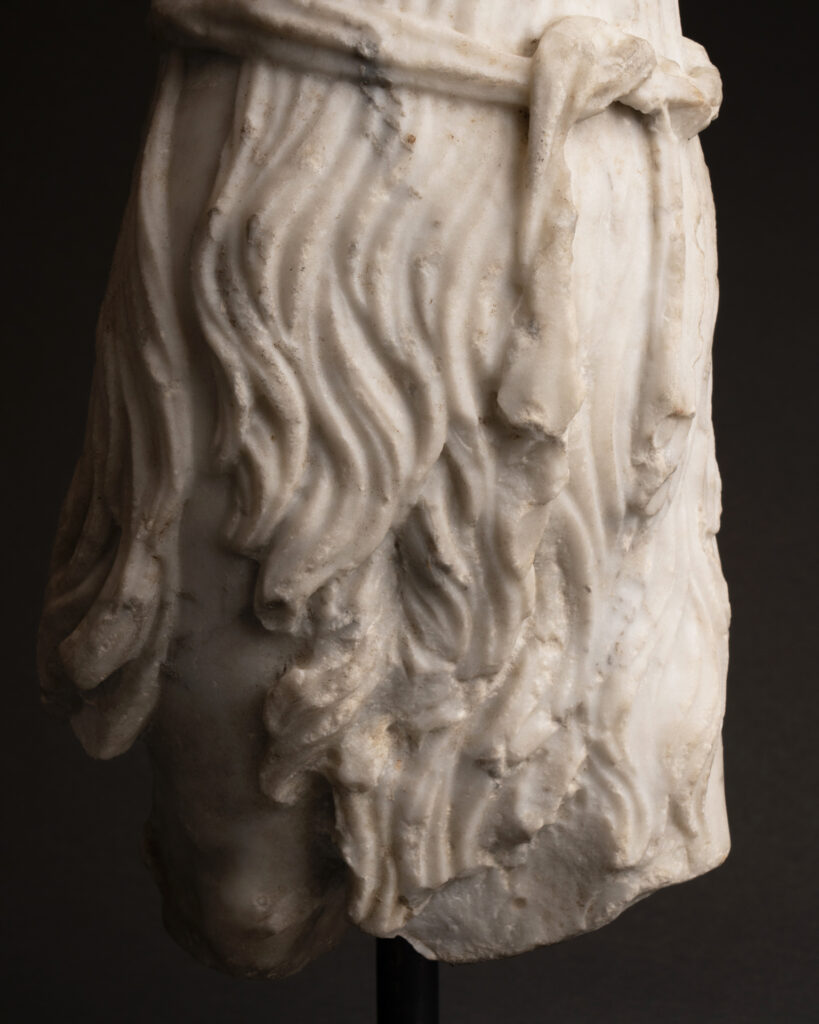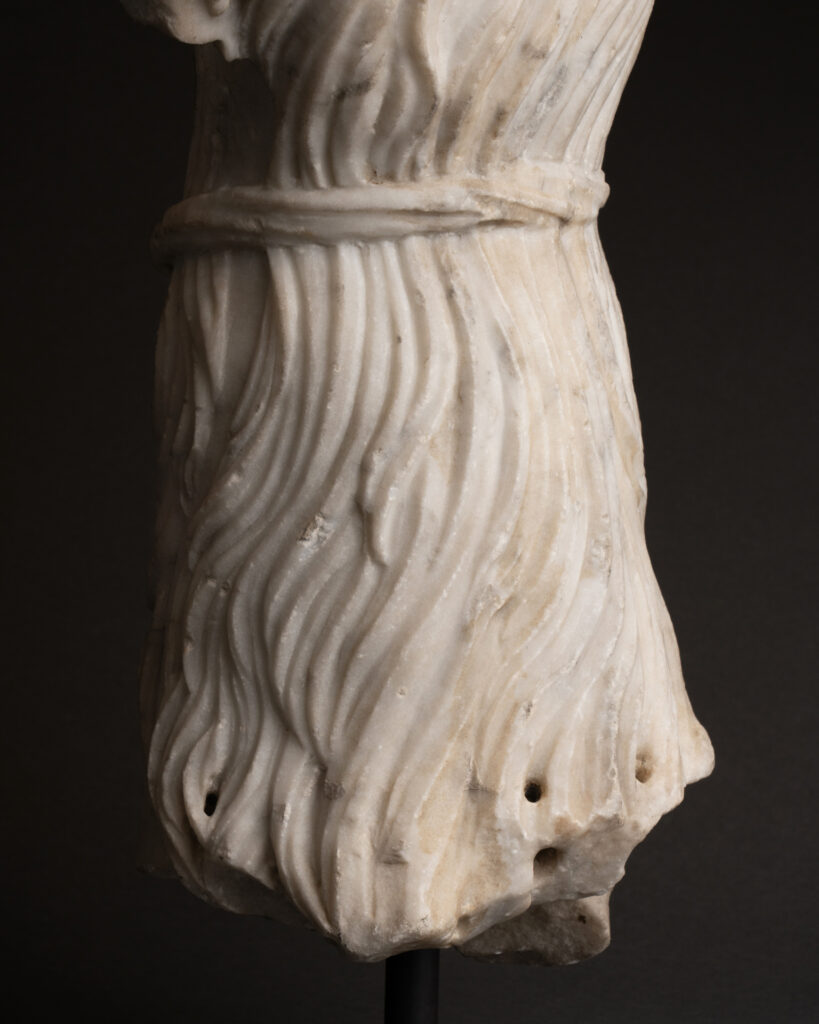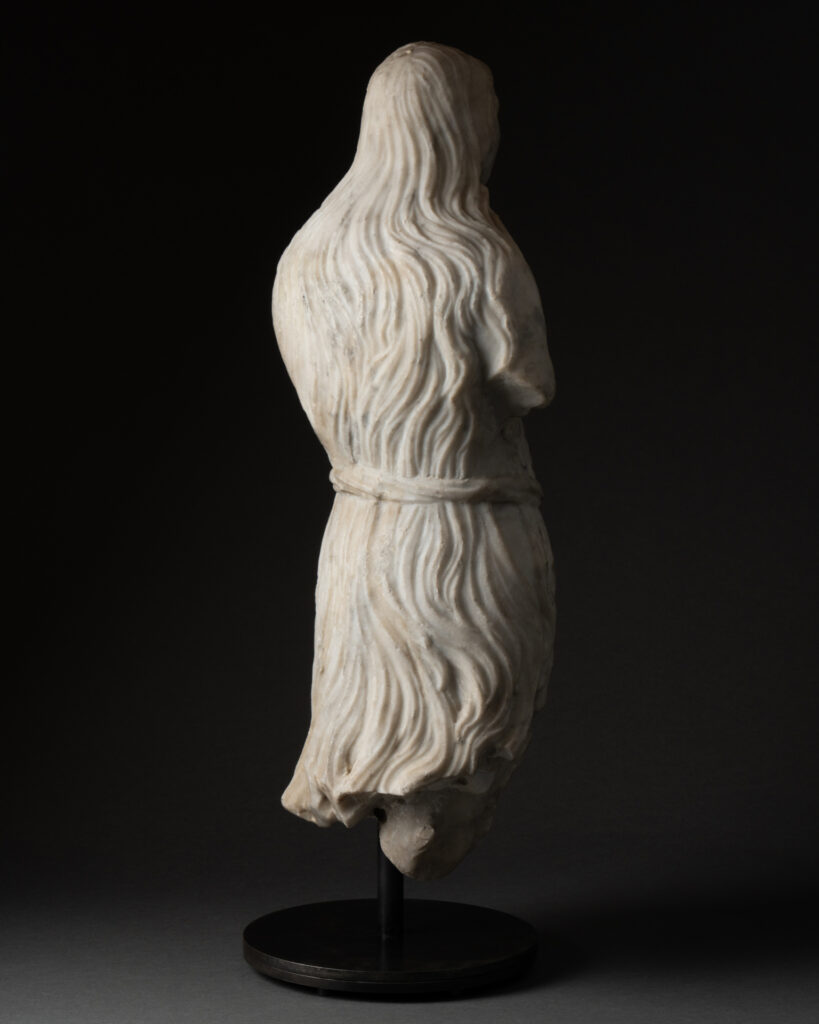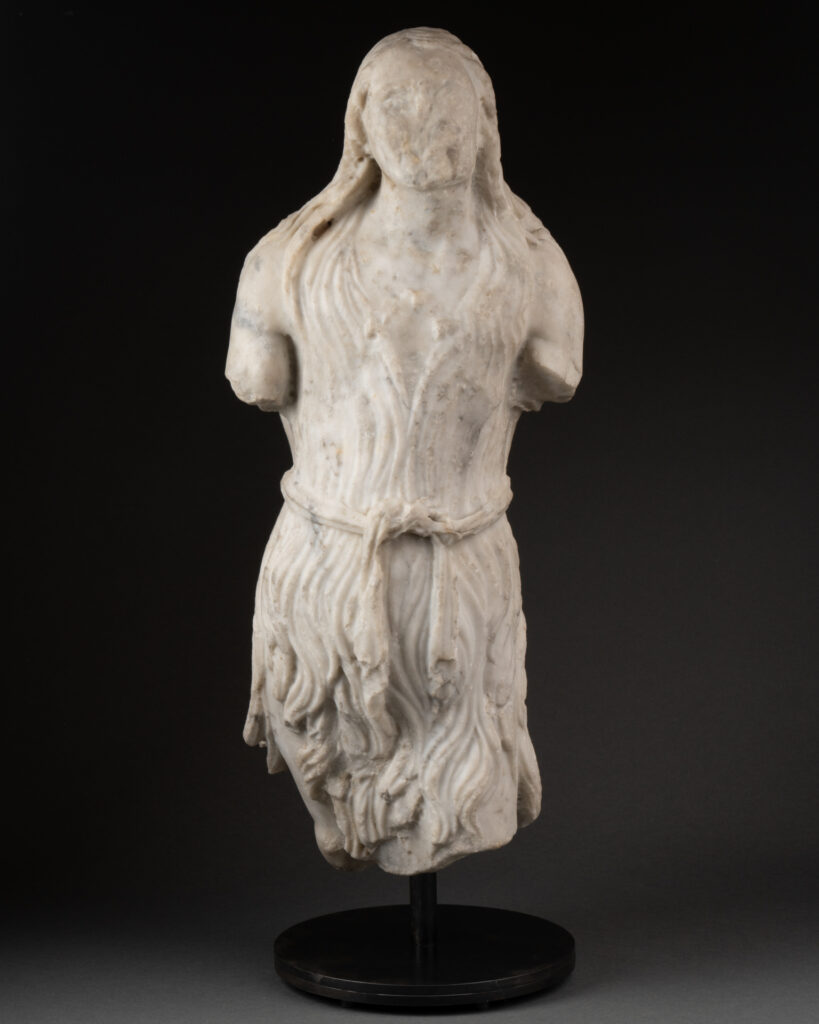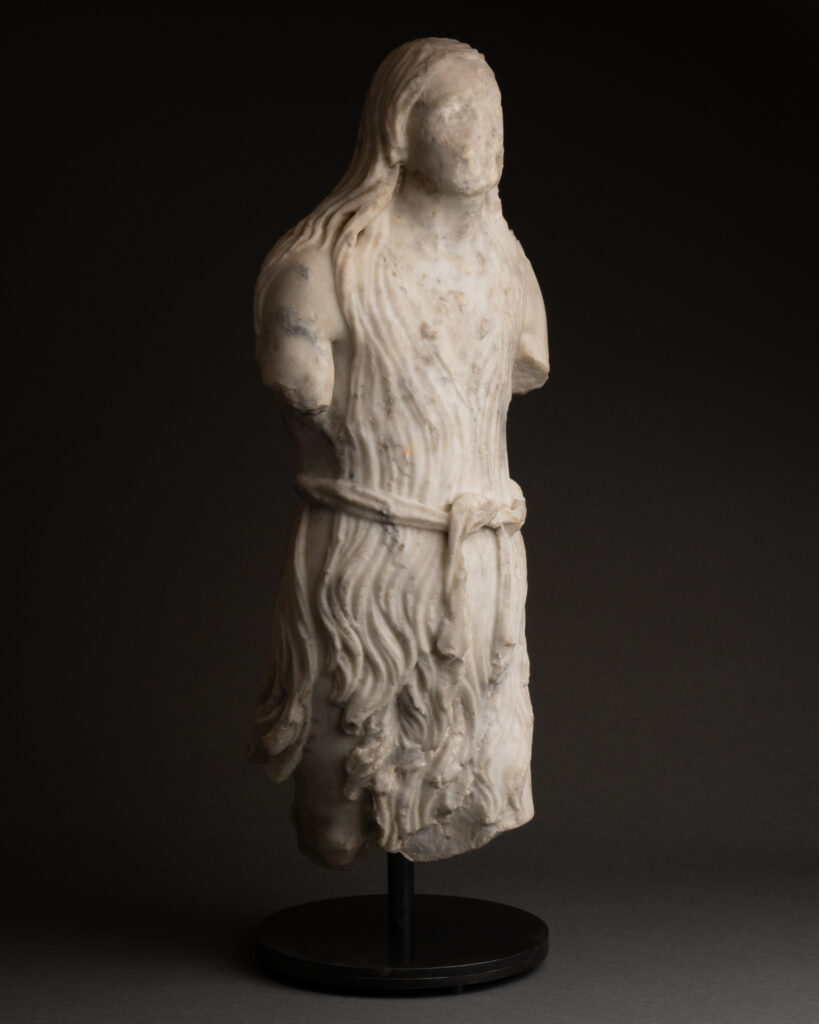This sublime marble statue depicts the penitent Mary Magdalene. It dates from the 15th century and comes from Italy.
Presented as Mary Magdalene Penitent, the statue represents the period in Mary Magdalene’s life when she became a hermit. She is shown from head to knees, with the rest of her body damaged. Her face has been deliberately damaged. We can, however, make out her facial features.
Her long, flowing hair is carefully detailed and covers her back. Mary Magdalene is often depicted with long hair, symbolising penitence and devotion. A belt is visible, made from her own hair.
There are three marble joints on her bust. These mark the original presence of her hands, which she places in prayer.
Marie Madeleine is a saint who gives rise to many reflections on her condition. According to her story, she committed adultery and fled to Jerusalem. Saint Mary Magdalene, delivered from her 7 demons by Christ, wanted to follow him. She repented and became his disciple. She was considered to be the first witness to Jesus’ resurrection and received from him the “mission” of announcing his resurrection to the apostles.
She later withdrew into the desert to become a penitent.
Now a hermit, her long hair grew and became her attire. Depictions of Mary Magdalene in penitence are identified by this characteristic. This tradition stems from her confusion with another Reformed prostitute, Saint Mary of Egypt, who is also depicted with long hair covering her body and three loaves of bread.
Saint Mary Magdalene is a rare subject, and her hair is an atypical statuary form, which makes this work exceptional, encouraging viewers to contemplate the depths of this mysterious female figure. This iconography is highly original compared with other representations of saints, who are usually dressed in ornate robes.
